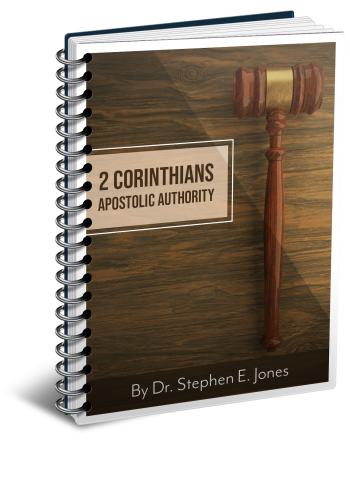Latest Posts
View the latest posts in an easy-to-read list format, with filtering options.

An in-depth commentary/study on the second book of Corinthians
Category - Bible Commentaries

2 Corinthians 1:19, 20 says,
19 For the Son of God, Christ Jesus, who was preached among you by us—by me and Silvanus and Timothy—was not yes and no, but is yes in Him. 20 For as many as be the promises of God, in Him they are yes; wherefore also by Him is our Amen to the glory of God through us.
Paul’s entire gospel rested upon the promises of God. That is the nature of the New Covenant, in fact. The Old Covenant rests upon the promises of men, as seen in Exodus 19:8. The New Covenant rests upon the promises of God, as seen in Deut. 29:12, 13. Only when we truly understand the nature of God’s promises can we fully understand the gospel itself.
Most are under the impression that the promise of God was to send Jesus to make it possible for man to fulfill his own vows toward God and therefore be saved. But we never find this in any of God’s promises. He did not come to help our flesh achieve what it would normally be unable to perform. Jesus was sent to actually do it—not to empower our flesh to fulfill its own vows and intentions.
So in Genesis 9 God made a covenant with the whole earth, declaring what He will do, not relying upon the ability of the earth or the will of man to accomplish His goal. Likewise, in giving the promise to Abraham, God put him to sleep, making it clear that this would be accomplished apart from Abraham’s will. God alone made the promise.
Hence, when it comes to the promises of God, we find only a positive statement (“yes”) and see no evidence of “yes and no.” There is no uncertainty, because the promises of God rest fully upon the will of God alone. Man can only respond with an AMEN. So Paul says, “by Him is our Amen to the glory of God through us” (vs. 20 above).
Man’s “amen” is not the cause of God’s success, but the evidence that God is beginning to fulfill His promise in us. As God creates an Amen people who are in agreement with Him and His plan, the promises of God are seen in a first fruits company, which in turn, sanctifies a greater harvest of fruit yet to come.
Paul concludes these introductory remarks in 2 Cor. 1:21-24,
21 Now He who establishes us with you in Christ and anointed us is God, 22 who also sealed us and gave us the Spirit in our hearts as a pledge. 23 But I call God as witness to my soul, that to spare you I came no more to Corinth. 24 Not that we lord it over your faith, but are workers with you for your joy, for in your faith you are standing firm.
Paul says that we all share the same Holy Spirit, who is the basis of our fellowship in Christ. Paul seems to say that he did not come to Corinth because he wanted to spare the congregation. He did not want to lead his assassins to the church, for that would have put them all in danger. Neither did Paul intend to deprive them of the exercise of faith (for divine protection). However, he faced this danger alone in order that the church might remain in “joy.”
As for the Holy Spirit being given “as a pledge” (arrabon), we will take up the meaning of arrabon and the law of pledges at a more opportune time when we study the fifth chapter of this letter.